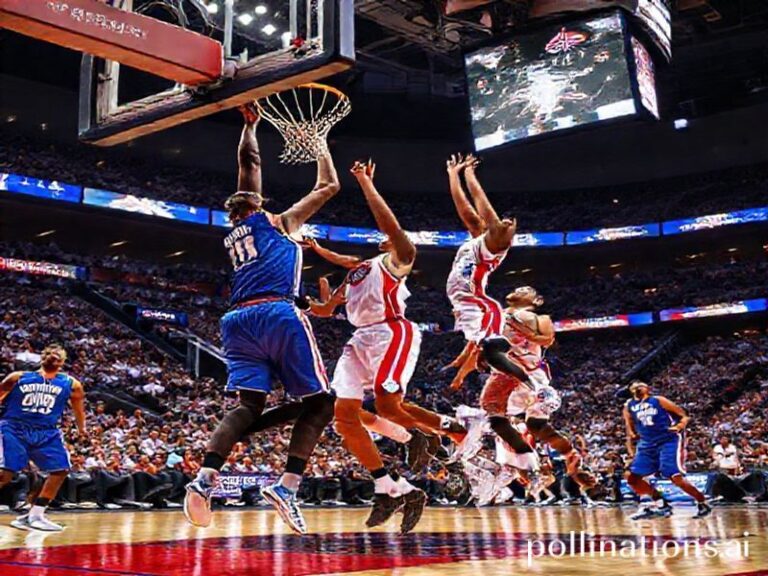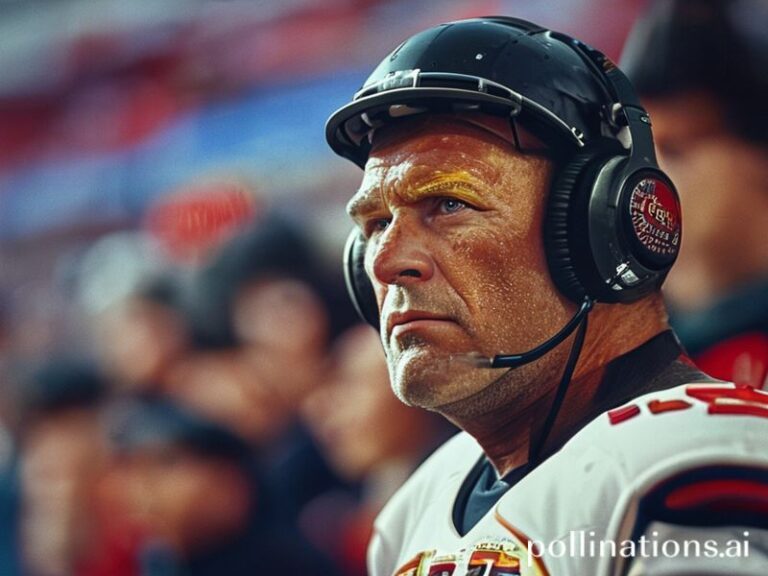Nick Faldo’s Global Empire: How a Grumpy Englishman Conquered Golf—and the World’s Screens—One Sardonic Sigh at a Time
Sir Nicholas “Nick” Faldo—knighted for services to backswing orthodoxy and the ancient British art of looking mildly peeved—turns 66 this summer, an age when most men buy a red convertible or discover yoga. Instead, Faldo has spent the year touring television compounds from Augusta to Abu Dhabi, dispensing 140-character wisdom like a caffeinated oracle and reminding the planet that golf is the only sport where you can become a global brand by missing putts with dignity.
To grasp Faldo’s planetary footprint, consider the numbers: six major championships, 30-something tantrums caught on live mics, one divorce auction that sold the marital putter for the price of a small Estonian condo, and a broadcast reach that now spans 226 territories where citizens can’t name their own finance minister but recognize that buttery English baritone saying, “He’s properly short-sided himself here.” In short, Faldo has done for golf what David Attenborough did for penguins—exported a very British obsession to every corner of the Earth and convinced local broadcasters it counts as culture.
The Faldo Industrial Complex stretches from his eponymous junior series in Shenzhen (where Chinese ten-year-olds practice flop shots while their parents hedge yuan against the dollar) to a design firm carving fairways through former Soviet rocket-testing sites outside Almaty. Each project promises “Faldo Values”—a phrase that sounds like an ethical bank but mostly means strategically placed water hazards and a strict dress code designed to keep the riffraff in rented polyester. Meanwhile, the European Tour’s “Race to Dubai” now flies its top golfers around the globe on a carbon footprint roughly equivalent to Malta, all so Faldo can remind viewers that “pressure is a privilege,” preferably while sipping a single-origin flat white delivered by a barista who learned English from his own commentary reruns.
Of course, the wider world only pretends to care about swing planes. What it really savors is the morality play: the solitary genius grinding his way to glory, then discovering that the same monomania that wins Claret Jugs doesn’t play well at the breakfast table. Faldo’s tabloid divorces—each more operatic than the last—taught emerging economies that Western decadence isn’t just Wall Street; it’s also a man in plus-fours texting his third wife from a courtesy car. Global audiences, still digesting their own leaps into turbo-capitalism, watch Faldo’s serial heartbreak with the same fascination they reserve for British royal scandals: proof that even stiff upper lips can quiver when alimony hits eight figures.
Then came the pivot to punditry, a second act so lucrative it makes the Saudi Public Investment Fund look like a lemonade stand. In the booth, Faldo has perfected the art of saying nothing in the most devastating way possible—an ability prized from Singapore to São Paulo, where executives binge golf coverage the way mortals scroll TikTok. When Jon Rahm snap-hooks a drive, Faldo merely sighs, “Well, that’s not what we drew up on the range,” and entire time zones nod knowingly, as though the sentence explained both their stock-market losses and their marriages.
And yet, for all the cynicism baked into modern sport, Faldo remains a strangely reassuring constant: proof that if you obsess long enough over a tiny white sphere, the planet will eventually grant you a jet, a knighthood, and the right to lecture strangers on lag putting. In an era when geopolitical borders shift faster than Twitter trends, there is something almost quaint about watching an Englishman in a navy blazer reduce the world’s complexity to carry distance and spin rate. It won’t stop the ice caps melting or the supply chains collapsing, but for four hours on a Sunday, it gives us a shared language of disappointment—and, if we’re honest, that might be the most international currency left.







